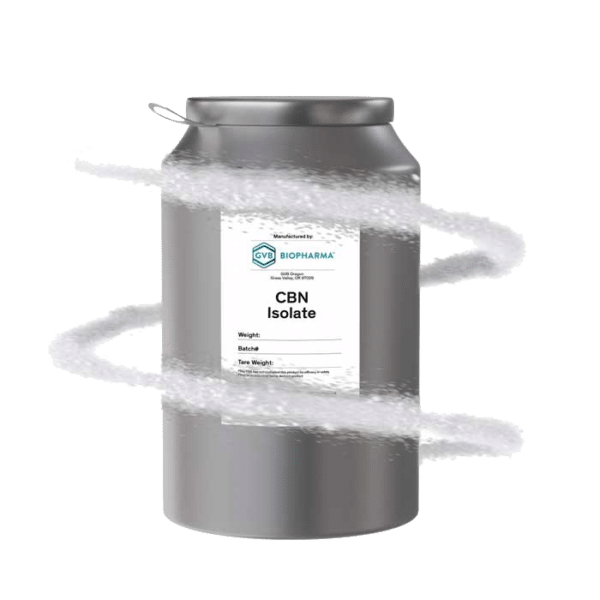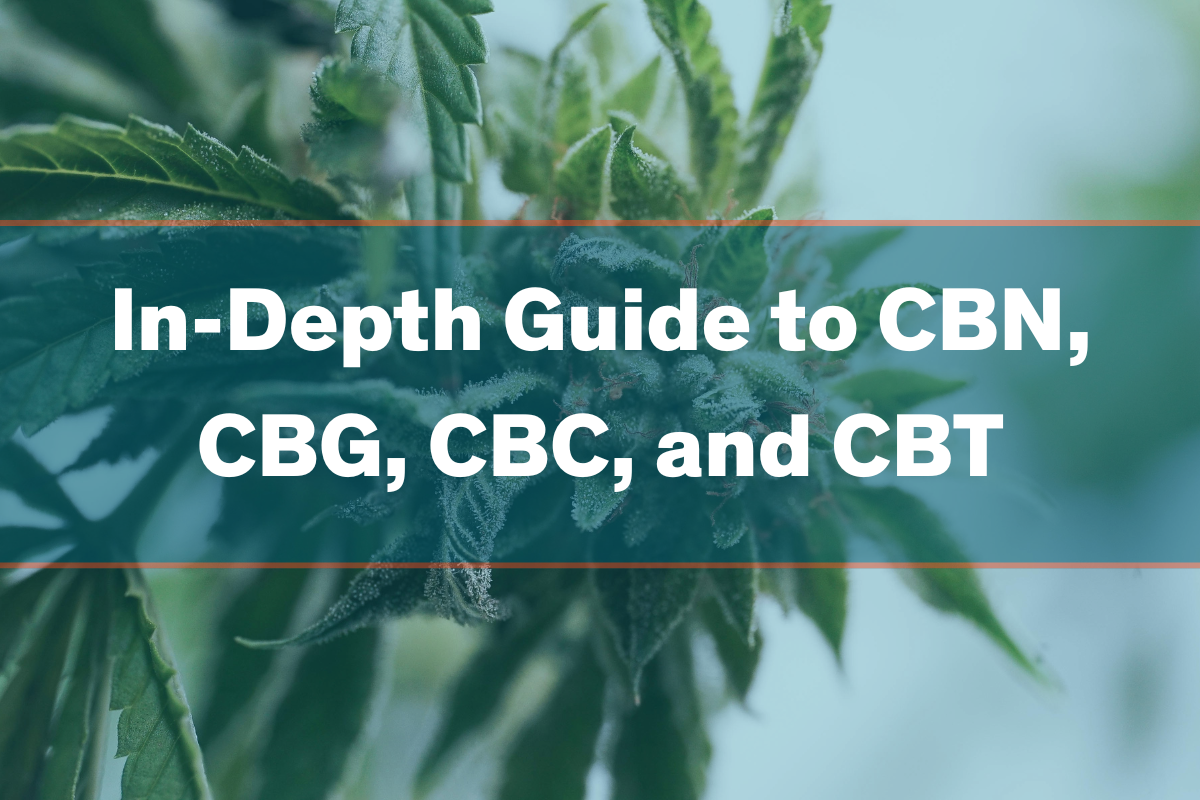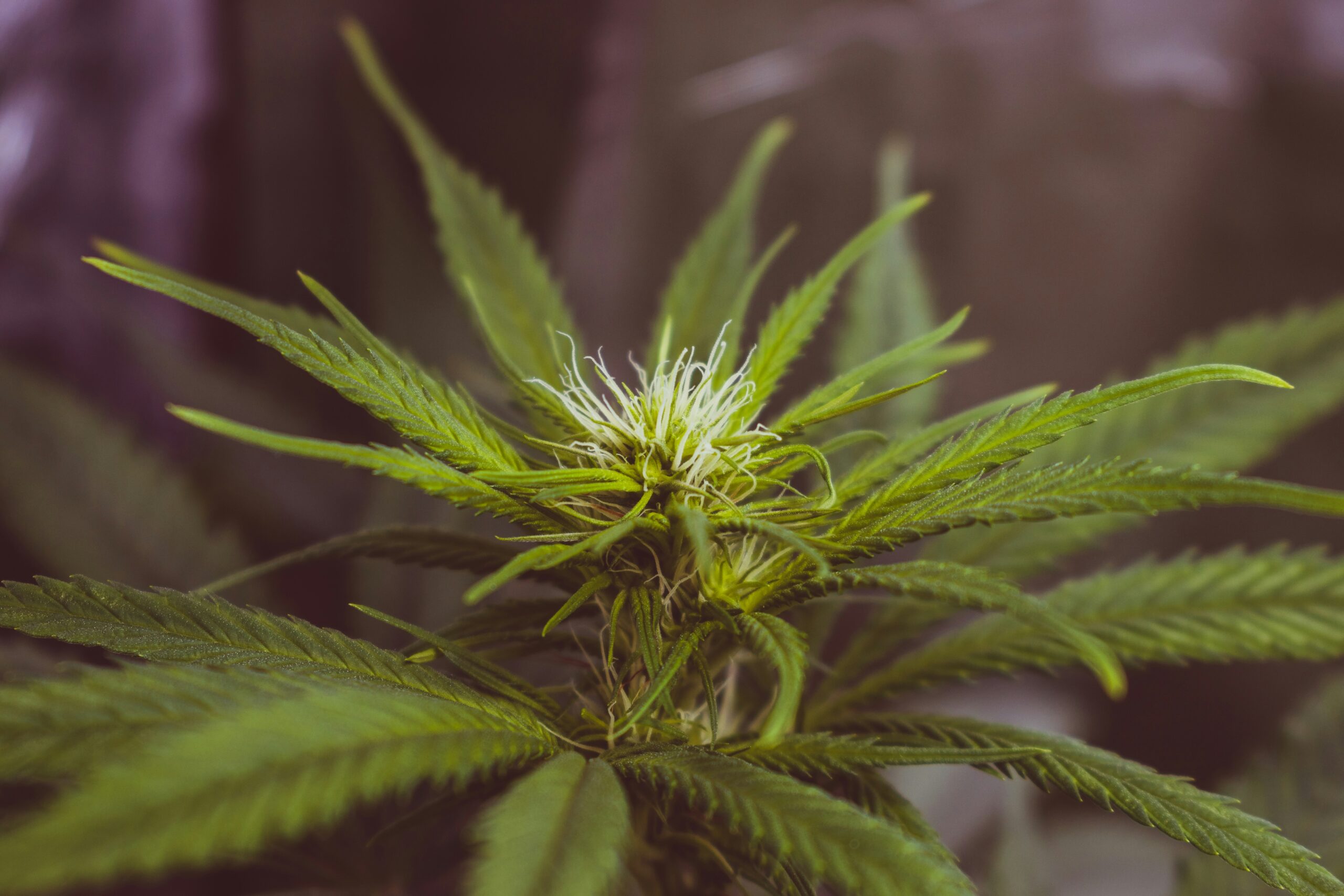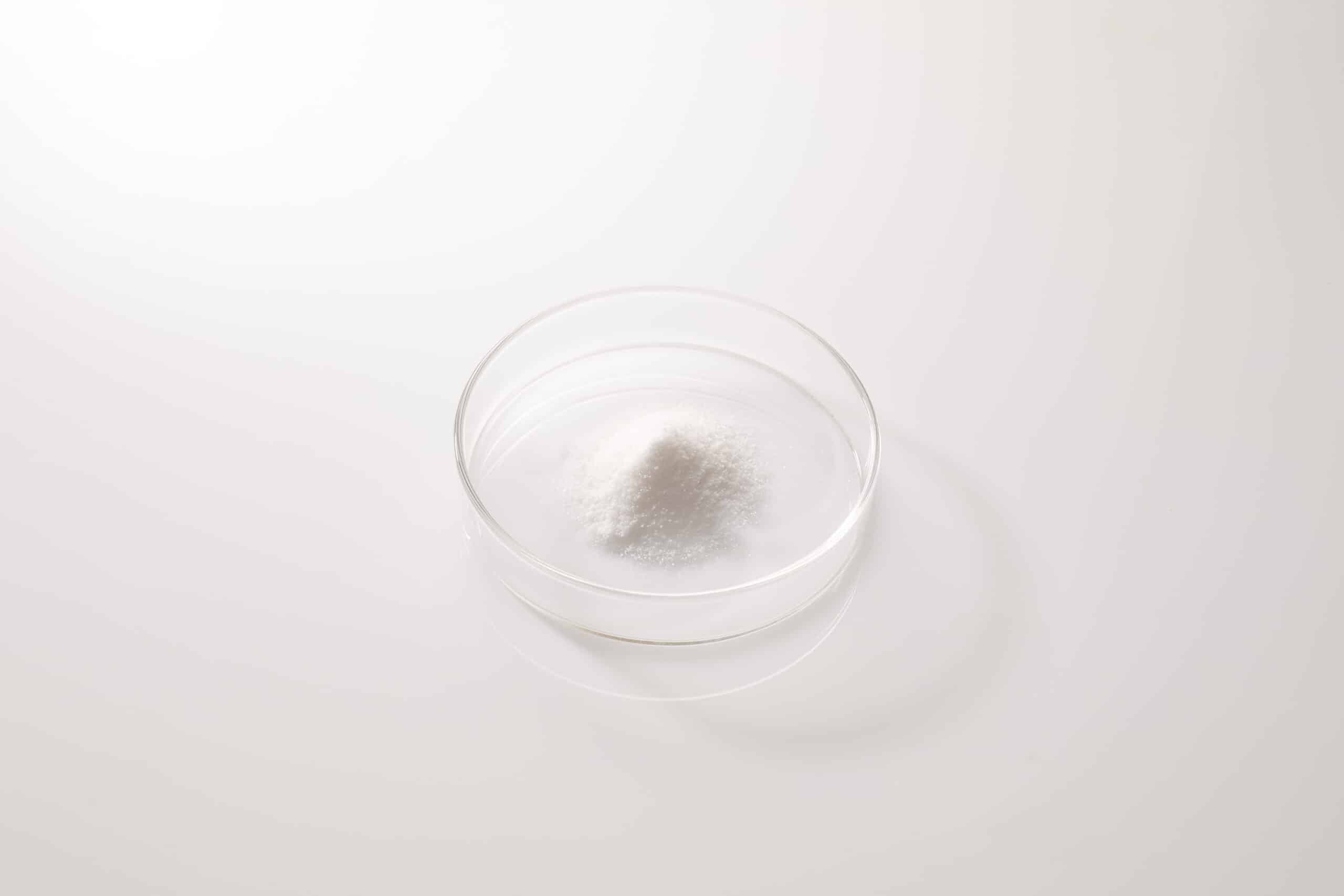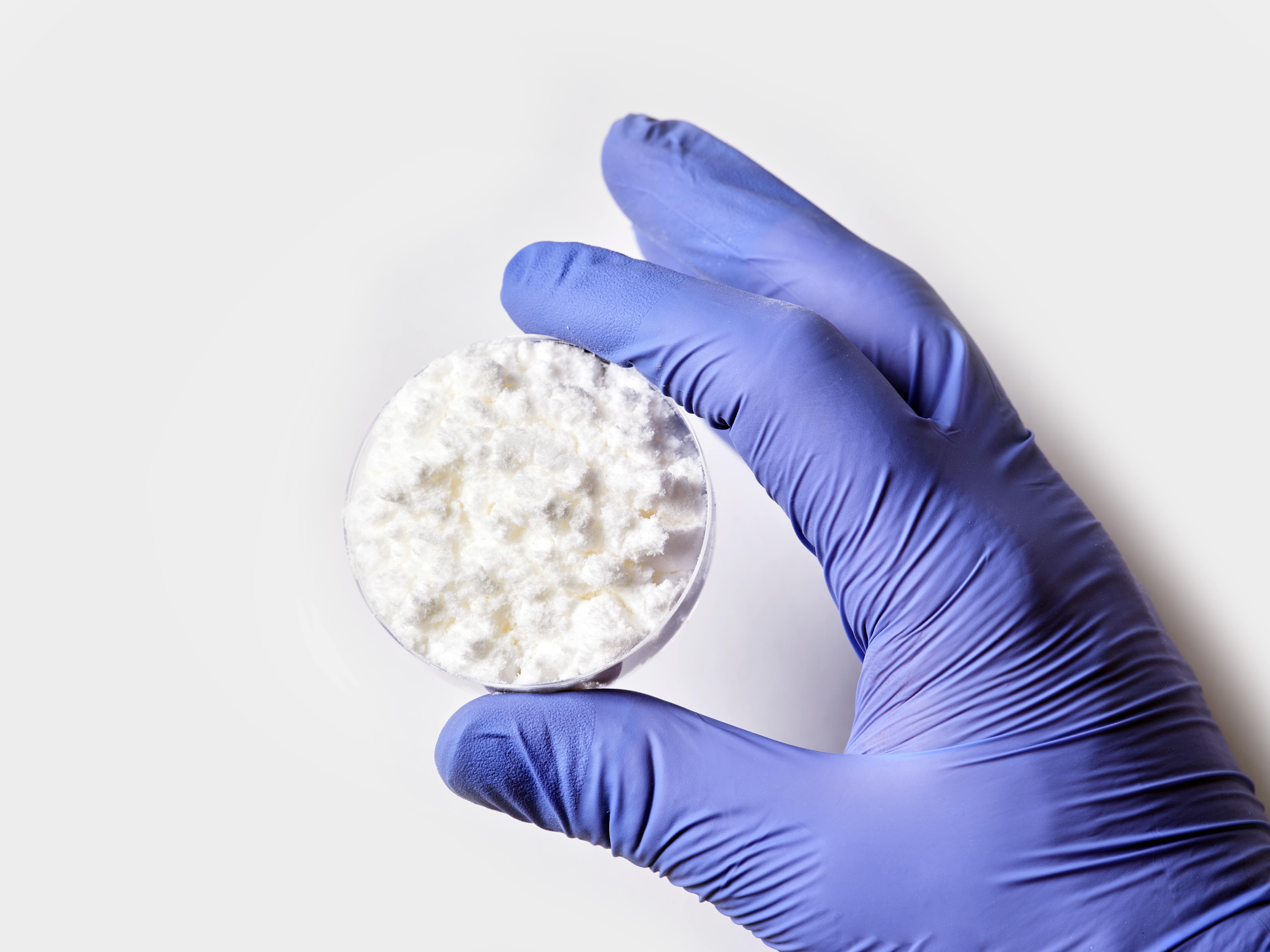Since CBN is gaining popularity faster than almost any other cannabinoid, it’s time to compare two of the most common types of CBN extracts: distillate and isolate. Each form of CBN has its unique advantages, but one type of extract might be more ideal for your particular purposes.
In this guide, we’ll start by making sure you’re familiar with the basics regarding CBN. Then, we’ll briefly define CBN distillate and isolate before diving into a more detailed comparison.
What is CBN?
Cannabinol (CBN) is a natural cannabinoid that’s considered a metabolite of THC. While THC has strong psychoactive effects, however, CBN won’t get you high. In this way, cannabinol is more similar to CBD or CBG regardless of its origins.
CBN is produced from THC due to oxidation – a natural process when THC ages or is exposed to light or heat. While CBN naturally appears when THC oxidizes, it’s also possible to convert CBN from CBD or other hemp cannabinoids. As a result, CBN is now widely sold online.
What are the benefits of CBN?
As one of the least-studied cannabinoids, the benefits of CBN are not yet fully understood. Extremely dated and limited research¹ tentatively indicates CBN should be further researched in the context of sleep-promotion, but modern research into this cannabinoid has focused more on its potential pain-relief² and neuroprotective³ effects. Regardless of its individual benefits, CBN may boost the intensity of the entourage effect⁴ when included in products alongside other hemp cannabinoids. Remember that the entourage effect occurs when cannabinoids work together synergistically to enhance the effects of each other.
How do you use CBN in products?
While research is sill being conducted about the possible sleep-promotion effects of CBN, the general public seems convinced that CBN shows promise as a sleep aid, leading to a heightening popularity of CBN in sleep-promoting products. Awareness has also spread to some degree regarding research into CBN as an analgesic. However, this cannabinoid is mainly desirable as an accompaniment to other hemp compounds due to its entourage effect.
While the individual benefits of CBN require an expert touch to convey, CBD is now a household name, and many CBD consumers are aware of the entourage effect. As a result, the value of any CBD product is likely boosted in the eyes of the consumer if CBN is also included on the label.
What is CBN extract?
CBN extract is derived from a cannabinoid-rich hemp flower that predominantly contains the cannabinoid CBN. This type of bulk hemp ingredient is available in multiple forms, most notably distillate and isolate. Their potency ranges from 70–97% total cannabinoids, and each extract can be used in a wide variety of products.
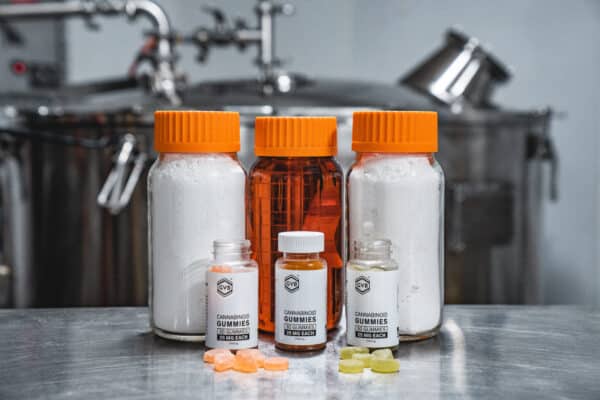
What is CBN distillate?
CBN distillate is a distilled cannabinoid extract that contains high concentrations of CBN. While CBN distillate is more purified than a crude extract, it still retains the minor cannabinoids, terpenes, and other beneficial substances naturally present in hemp flowers. This attribute makes CBN distillate highly desirable for products like tinctures, gummies, and vape cartridges.
CBN distillate usually has a honey-like appearance and consistency, and it can offer CBN potencies as high as 80%. Some forms of CBN distillate contain trace THC, yet it can also be refined to remove all detectable levels.
What is CBN isolate?
CBN isolate consists almost entirely of pure cannabinol molecules. Offering 97%+ chemical purity, CBN isolate is ideal for formulating into a wide variety of products even if it is not especially usable in its raw form.
Where this isolated product truly shines is in its ideal suitability for combination with other cannabinoid extracts. CBN isolate makes it easy to infuse any new or existing products with the unique and intriguing benefits of CBN.
CBN distillate vs. CBN isolate
Now that you understand CBN distillate and isolate, it’s time to compare these hemp extracts in more detail. We’ll pit CBN isolate and CBN distillate against each other in eight categories, helping you decide which extract suits your products.
Effects
Because the extracts contain the same molecule the effects of CBN isolate and distillate should be largely the same. Nonetheless, the effects of CBN distillate may be somewhat stronger due to the presence of minor cannabinoids and terpenes. Then again, CBN isolate often contains higher concentrations of total cannabinoids than CBN distillate, potentially equalizing the intensity of the effects provided by the two extracts.
Powder
CBN isolate naturally comes in a powder form, making it easy to infuse into any bulk cannabinoid ingredient—especially water-soluble powder. Even though it’s honey-like in its natural state, it’s just as possible to translate the somewhat wider benefits of CBN distillate into a water-soluble powder extract.
Liquid
Because of its consistency, CBN distillate is naturally ideal for liquid formulations, including both water-soluble liquid and crystal-resistant distillate. Isolates, like CBN isolate, are naturally dry but can be formulated into liquid formulas.
Uses
CBN distillate and isolate share many potential uses, though their applications do not always align. For vape cartridges, CBN distillate’s full-spectrum attributes are often preferred, while isolate suits complex formulations. Both extracts can be formulated with undetectable THC, making CBN isolate and distillate equally desirable under regulations.
Products
Examples of products that are ideal for the utter simplicity CBN isolate include:
1. Capsules
2. Tablets
3. Topicals
Products that are ideal for the rich flavors of CBN distillate, however, include:
1. Vape cartridges
2. Tinctures
3. Gummies
In reality, either type of CBN extract can be included in any of the product types listed above. It all depends on what you’re trying to accomplish and the audience you’re trying to reach. Speak with a qualified cannabinoid white labeller to take a more personalized approach to developing your new CBN product.

Minor cannabinoids
Here’s a category in which there’s a clear and distinct difference between CBN isolate and CBN distillate. While CBN distillate features a rich entourage of minor cannabinoids, CBN isolate does not. Due to its purity, the isolate consists solely of the CBN molecule, rendered down into an almost completely molecularly pure state.
If you want to capture the boost offered by the entourage effect, therefore, you’ll need to go with CBN distillate instead of CBN isolate. CBN distillate contains small concentrations of CBD, CBG, CBC, and other minor cannabinoids, potentially augmenting its effects in a myriad of subtle ways.
Ongoing research
The majority of research into cannabinoids—including research into CBN—focuses on the effects these hemp and cannabis compounds exert when isolated. A growing call is emerging, however, to get to the bottom of the impact of the entourage effect on the benefits of cannabinoids, leading to more research involving cannabinoid distillates. Regardless of which type of extract is used, we’ll learn more about how to use this cannabinoid in products with each new CBN study published.
How do I choose the right CBN extract?
Now that you’re familiar with all the important details regarding CBN distillate and isolate, how do you choose the right type of CBN extract for your exact purposes? Let’s take a look at some of the facts.
In the past, cannabinoid isolates were desirable due to their lack of THC. These days, however, it’s just as possible to remove all detectable traces of THC from distillate, eliminating this advantage.
In the modern hemp market, the main reason you wouldn’t use CBN distillate is to avoid unbalancing a product formulation. If a product already contains a cannabinoid distillate, for instance, increasing the ratio of oils in the formulation could be undesirable. In this case, you could add the benefits of CBN to the product using an isolate extract instead.
The reality is that there are dozens of factors like this to consider when choosing the right cannabinoid extract: all of which are equally important. That’s why it’s best to put your product line together with the expert guidance of a reputable hemp white labeller.
CBN isolate vs. distillate: The bottom line
CBN isolate and distillate may contain the same cannabinoid, but the differences between these two cannabinoid extracts can take an expert touch to properly discern. Choosing the wrong extract could doom an otherwise promising product, but including the right kind of CBN in your product formulation is the first step toward success in the rapidly evolving fringe cannabinoid market.
To unlock the potential benefits of CBN to the fullest for your customers, it’s best to formulate your CBN product line with the help of experienced hemp private labelers. At GVB Biopharma, we exert full vertical integration throughout the production process to ensure the highest possible standards of quality and reliability, and we have the expertise necessary to deliver key insights on product formulation and customization. Contact us to get started.
CBN extract comparison FAQs
1. Is CBN isolate or distillate better?
When comparing CBN isolate to CBN distillate, it would be a mistake to consider one type of extract to be inherently superior to the other. CBN isolate might be the inferior decision in some situations, but there are also plenty of product types in which oily distillates are the wrong choice. Weigh the pros and cons of both CBN isolate and CBN distillate to determine which type of cannabinoid extract is ideal for your particular situation.
2. What is CBN isolate good for?
CBN isolate is ideal for applications in which you want to add a certain amount of CBN to an existing formulation that already contains cannabinoids. This simplified form of extract can also be suitable for use on its own, but shoppers increasingly demand broad-spectrum or full-spectrum extracts in their cannabinoid products. Easy both to handle and to measure for accurate dosing, consider CBN isolate as the reliable workhorse that might nonetheless be a bit less imaginative than other forms of CBN extract.
3. Is CBN distillate water-soluble?
No, CBN distillate is not water-soluble unless otherwise specified. We do, though, offer a water-soluble CBN distillate liquid — contact a client support representative to learn more about this innovative and versatile product type.
4. How much CBN do you need to use?
Due to a general lack of research into this cannabinoid, there is no definitive answer regarding how much CBN each individual should use. Based on the research that has been conducted, though, it appears that there is very little risk associated with using even high concentrations of CBN. While it’s always appropriate to start using any cannabinoid at a low dose, it is recommended to consult with a doctor to determine a dose that is safe for you.
Sources
- 1. Karniol, I. G., Shirakawa, I., Takahashi, R. N., Knobel, E., & Musty, R. E. (1975). Effects of Δ9-Tetrahydrocannabinol and Cannabinol in Man. Pharmacology, 13(6), 502–512. https://doi.org/10.1159/000136944
- 2. Wong, H., & Cairns, B. E. (2019). Cannabidiol, cannabinol, and their combinations act as peripheral analgesics in a rat model of myofascial pain. Archives of Oral Biology, 104, 33–39. https://doi.org/10.1016/j.archoralbio.2019.05.028
- 3. Weydt, P., Hong, S., Witting, A., Möller, T., Stella, N., & Kliot, M. (2005). Cannabinol delays symptom onset in SOD1 (G93A) transgenic mice without affecting survival. Amyotrophic Lateral Sclerosis, 6(3), 182–184. https://doi.org/10.1080/14660820510030149
- 4. Ferber, S. G., Namdar, D., Hen-Shoval, D., Eger, G., Koltai, H., Shoval, G., Shbiro, L., & Weller, A. (2020). The “Entourage Effect”: Terpenes Coupled with Cannabinoids for the Treatment of Mood Disorders and Anxiety Disorders. Current Neuropharmacology, 18(2), 87–96. https://doi.org/10.2174/1570159×17666190903103923

